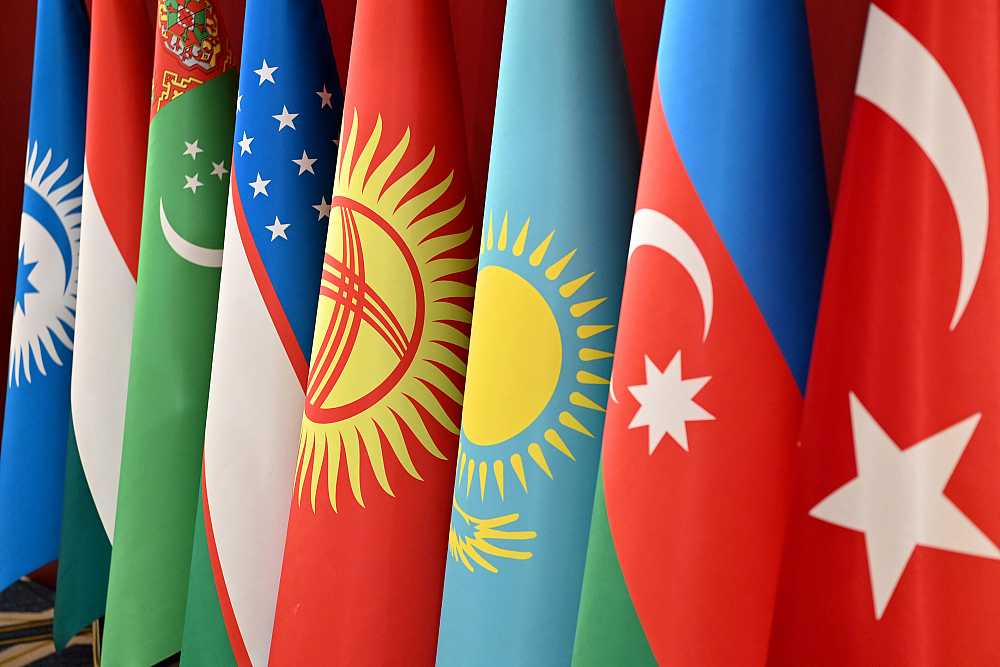This week, the Organization of Turkic States was officially established to replace the Turkic Council, creating a new stage for collaboration between the Turkic states, including the Central Asian countries of Kazakhstan, Kyrgyzstan, Uzbekistan, and Turkmenistan (observer). Elsewhere, Russia donated 200 thousand doses of Sputnik Light vaccine to Kyrgyzstan, and the Glasgow Climate Change Conference concluded on November 12, where the Central Asian States issued a single regional statement. Afghanistan was a bit away from the limelight this week, but the threats of terrorism, extremism and drug trafficking remain to be a matter of concern in the region, due to which the Central Asian countries continue to carry out military exercises in the Southern Strategic Direction. As for China's presence in the region, the Sino-Kazakh joint venture is announced to have begun production of nuclear fuel.

Image source: Ankasam
On November 12, 2021, the Turkic Council was replaced by the Organization of Turkic States - an association that includes Kazakhstan, Kyrgyzstan, Uzbekistan, Turkey, Azerbaijan, Hungary, as well as Turkmenistan as an observer (See: Anadolu Agency, Daily Sabah). Among the important resolutions adopted were the establishment of the investment fund of the Organization of Turkic States, as well as the adoption of a collective strategy labeled "Vision of the Turkic World-2040". Seven other organizational resolutions were adopted in connection with the renaming of the organization and granting Turkmenistan the observer status.
On the same day, a plane arrived in Bishkek carrying 200,000 doses of the Sputnik Light coronavirus vaccine donated by Russia to Kyrgyzstan (See: AKIpress, KABAR). The said humanitarian assistance was provided by the EMERCOM of Russia as a matter of urgency, as the total number of vaccine doses administered in the Central Asian republic has barely reached 1.3 million. Earlier, a cargo of 120,000 doses of the Sputnik V vaccine had also arrived in Kyrgyzstan out of which 10 thousand doses were free of charge.
At the Glasgow Climate Change Conference, the five Central Asian states unveiled their Pavilion "Central Asia: 5 countries - 1 region - 1 vote", showcasing a collective climate stance for the very first time. Kazakhstan, Kyrgyzstan, Tajikistan, Turkmenistan, and Uzbekistan are affected by a particular set of harsh effects of climate change, amplified by their isolation from the oceans and among other things, the dramatic reduction of water resources. The position of the countries of Central Asia attracted the attention of the global community. During the work of the CA Pavilion, several agreements were signed, including the Memorandum of Understanding on the Conservation of the Snow Leopard, its forage base and habitat in Western Tien Shan and Pamir Alai, and establishment of a Regional Centre for Climate Transparency in Central Asia (ReCATH)(See: Onmanorama, Techtwiddle).
Closer to the Afghanistan borders, the Cobalt CSTO special forces maneuvers at the Fahrabad training ground in Tajikistan and the joint Kazakh-Uzbek exercises Hamkorlik-2021 at the Termez training ground in Uzbekistan are to begin simultaneously (See: The Tribune, Kun.uz). These activities are not integrated, but have common goals - troops are working out operations to counter the likely armed expansion of international terrorist groups from Afghanistan. Kazakhstan does not have a common border with Afghanistan, but in a situation of conflict in Central Asia, it will only naturally become involved. Earlier, in connection with the difficult operational situation in Afghanistan where fighting and terrorist attacks continue, the Kazakh parliament approved measures for free military-technical assistance to Kyrgyzstan and Tajikistan (See: 24.kg, Caspian News).
Finally, another notable story from this week was about the continuous active cooperation between Kazakhstan and China with the supply of enriched uranium from Russia to a joint venture of the two afore-mentioned states. The delivery for the Sino-Kazakh joint venture Ulba-TVS LLP located in Ust-Kamenogorsk was carried out by TsOU JSC, a division of the Russian energy company Rosatom. (See: The Manila Times, Eurasianet). The project is an opportunity for Kazakhstan to enter the narrow circle of states producing and supplying nuclear fuel for nuclear power plants. One aspect of the significance of the event is that the last time Kazakhstan had its own nuclear fuel plant was more than 20 years ago.

